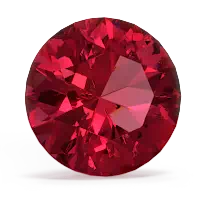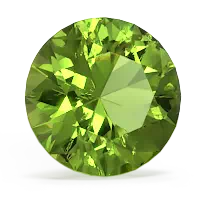

The gemstone is the star in these elegant Lab Ruby solitaire pendants. Gem of hot summer nights and steamy red sunsets, ruby is the birthstone of July. Show the world the passions within you with a fiery ruby ring. Once considered more valuable than diamonds, a peridot ring is a must have. This "gem of the sun" is the birthstone of August and is a beautiful match for the lush green tapestry of late summer.